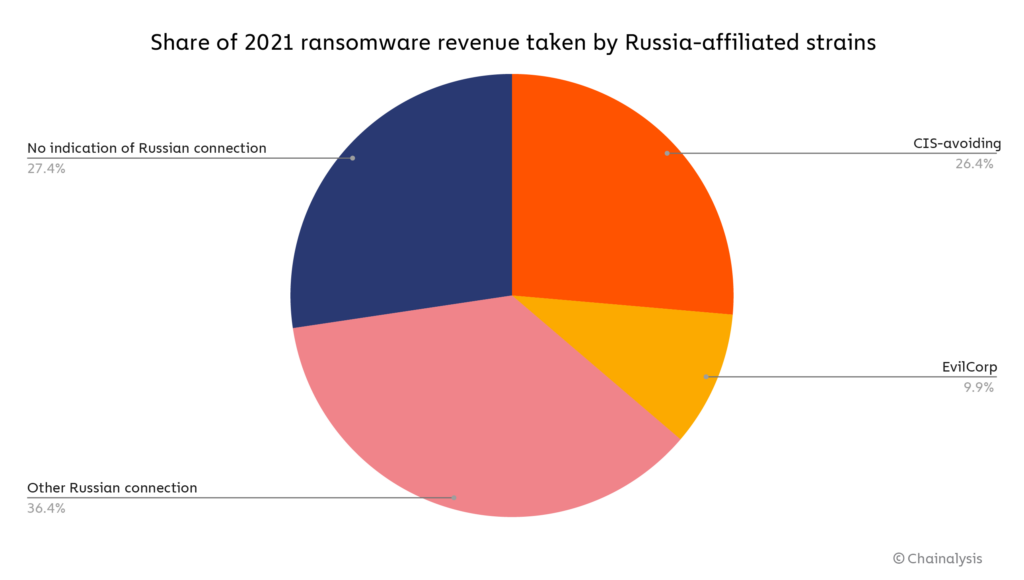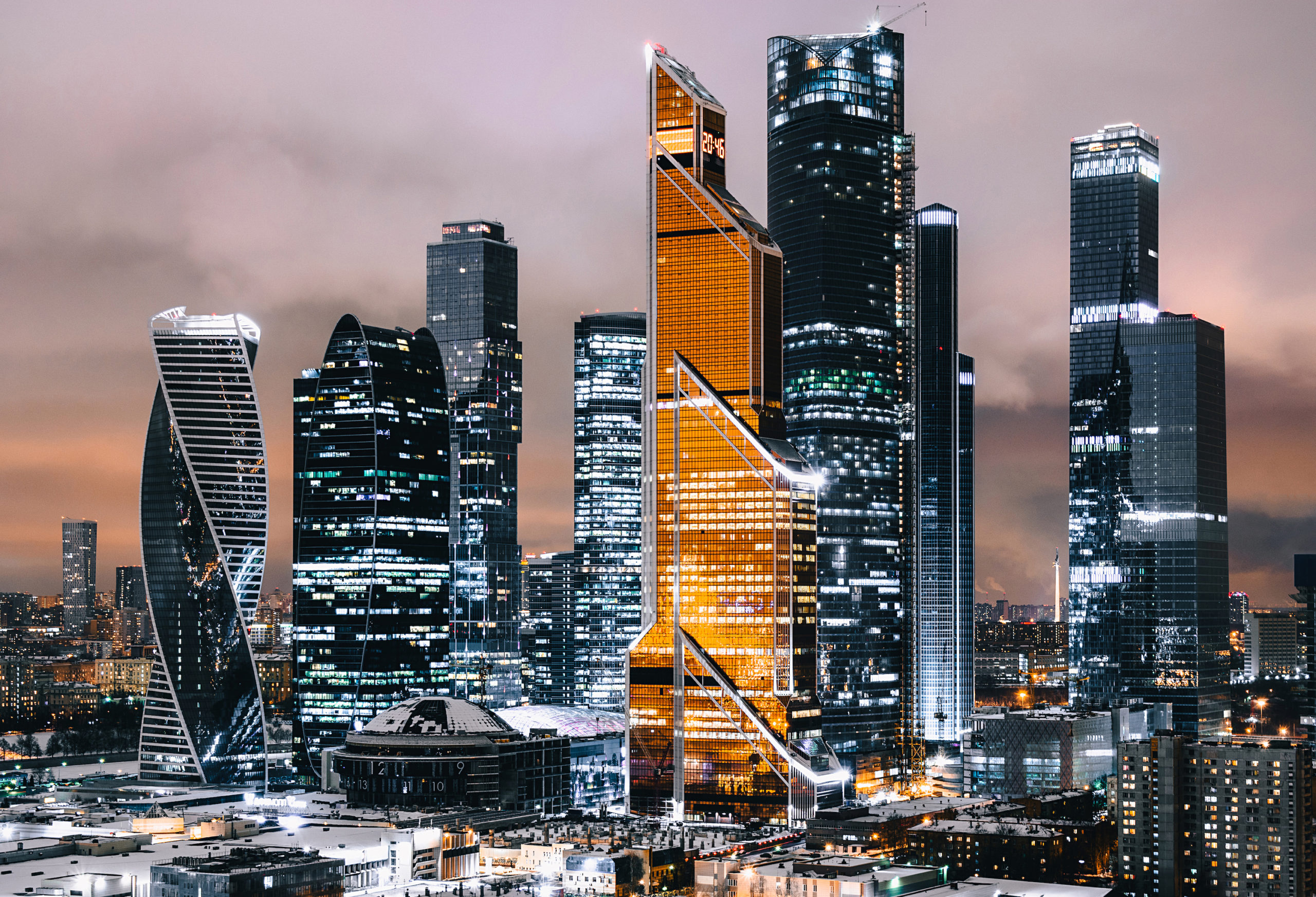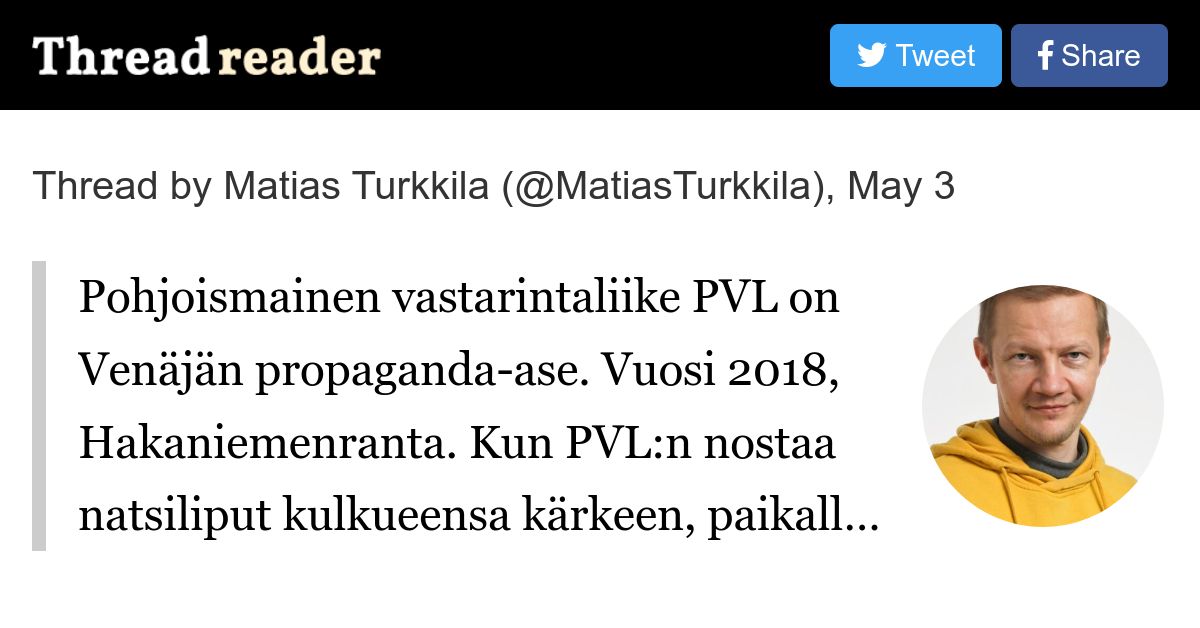

An estimated 13% of funds sent from ransomware addresses to services went to users estimated to be in Russia, more than any other region. That brings us to another point: A huge amount of cryptocurrency-based money laundering, not just of ransomware funds but of funds associated with other forms of cybercrime as well, goes through services with substantial operations in Russia.
Overall, the Moscow City cryptocurrency businesses we track vary greatly in the role that money laundering plays in their overall business. Some of them are big enough that despite receiving millions of dollars’ worth of funds from illicit addresses, those funds only represent 10% or less of all cryptocurrency they receive. Those instances could be attributed to the business’s lack of knowledge, rather than purposeful criminal activity. But for other Moscow City cryptocurrency businesses, illicit funds make up as much as 30% or more of all cryptocurrency received, which suggests those businesses may be making a concerted effort to serve a cybercriminal clientele.
analysts have speculated that the arrests were an act of diplomacy meant to cool tensions with the United States over Russia’s troop buildup on Ukraine’s borders, and may not indicate true commitment to fighting ransomware. At the same time, cryptocurrency’s regulatory status in Russia appears to be in flux, with President Vladimir Putin defending cryptocurrency miners at the same time the country’s national bank recommends an all-out ban on all cryptocurrency activity.

Russians Drive Ransomware and Crypto Money Laundering Activity - Chainalysis
Significant ransomware and crypto-based money laundering comes from Russian cybercriminals. Learn more from the 2022 Crypto Crime Report.

















